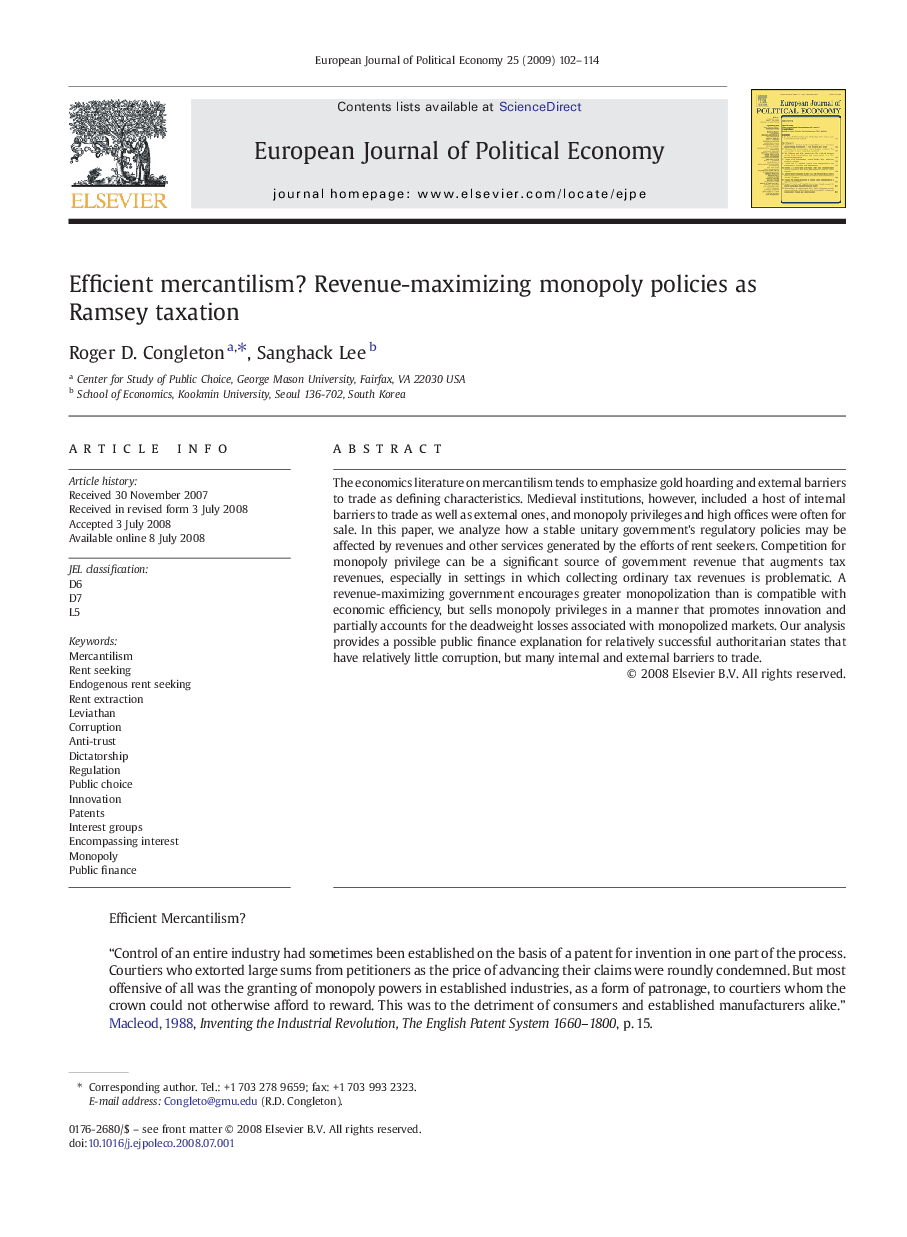| Article ID | Journal | Published Year | Pages | File Type |
|---|---|---|---|---|
| 5068597 | European Journal of Political Economy | 2009 | 13 Pages |
The economics literature on mercantilism tends to emphasize gold hoarding and external barriers to trade as defining characteristics. Medieval institutions, however, included a host of internal barriers to trade as well as external ones, and monopoly privileges and high offices were often for sale. In this paper, we analyze how a stable unitary government's regulatory policies may be affected by revenues and other services generated by the efforts of rent seekers. Competition for monopoly privilege can be a significant source of government revenue that augments tax revenues, especially in settings in which collecting ordinary tax revenues is problematic. A revenue-maximizing government encourages greater monopolization than is compatible with economic efficiency, but sells monopoly privileges in a manner that promotes innovation and partially accounts for the deadweight losses associated with monopolized markets. Our analysis provides a possible public finance explanation for relatively successful authoritarian states that have relatively little corruption, but many internal and external barriers to trade.
